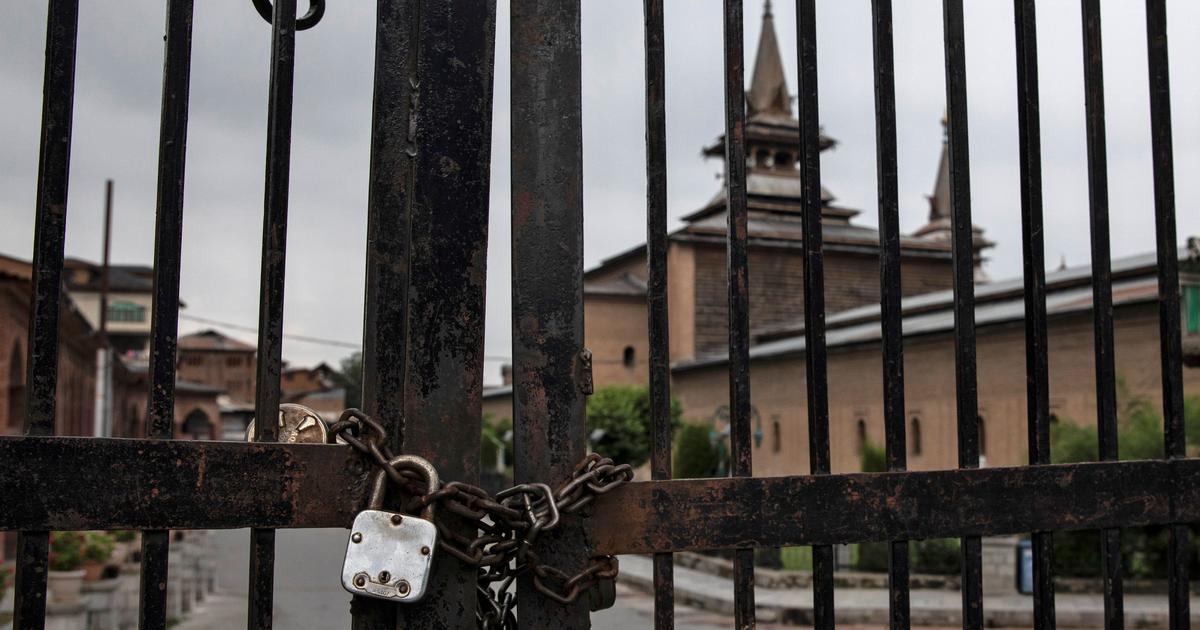Parties flay closing of Jamia mosque on Shab-e-Baraat
The Jammu and Kashmir Police’s decision not to allow congregational night prayers at Srinagar’s historic grand mosque on Shab-e-Baraat — one of the sacred nights in the Islamic calendar — on Thursday evoked criticism from parties in the Valley and from CM Omar Abdullah.
The mosque’s chief cleric and Hurriyat Conference chairman Mirwaiz Umar Farooq said he was not allowed to visit Jamia mosque for Friday prayers. In a statement, Mirwaiz described it condemnable that again and again on Fridays he is “disallowed from going to Jamia Masjid”.
Several political leaders on Thursday criticised the police for shutting Srinagar’s Jamia Masjid on Shab-e-Baraat. Omar Abdullah said the “decision betrays a lack in confidence in the people and a lack of confidence in the law and order machinery”.
J&K Pradesh Congress Committee president Tariq Hameed Karra on Friday strongly condemned the lockdown of Jamia Masjid. “Putting Jamia Masjid under lock on Shab-e-Baraat reflects the lack of confidence with respect to the claims that are being made by the government day in and day out on the security front,” he said.
Mirwaiz Umar Farooq, Kashmir’s chief cleric, was placed under house arrest. People gathered at the mosque were asked to leave.
The Jammu and Kashmir Police restricted congregational prayers at Srinagar’s historic Jamia Masjid on the night of Shab-e-Baraat, one of the holiest nights in the Islamic calendar.
Mirwaiz Umar Farooq, Kashmir’s chief cleric, who was scheduled to deliver the sermon, was placed under house arrest. People gathered at the mosque in Srinagar’s Nowhatta, also known as Downtown, were asked to leave, and the mosque management was informed that there would be no night prayers.
The decision faced sharp criticism from political leaders, with chief minister Omar Abdullah calling it “unfortunate” and raising concerns about the lack of confidence in the region’s law and order system.
“It is very unfortunate that the security establishment has taken the decision to seal the historic Jamia Masjid, Srinagar, on one of the holiest nights in the Islamic calendar — Shab-e-Baraat. This decision betrays a lack of confidence in the people and a lack of confidence in the law-and-order machinery that calm won’t prevail without extreme measures. The people of Srinagar deserved better,” Abdullah said in a post on X (formerly Twitter).
The Jammu and Kashmir Police did not release any official statement regarding the restrictions. However, the Kashmir Zone Police’s official handle posted on X, saying, “IGP Kashmir wishes people on the eve of Shab-e-Baraat. May this blessed night bring harmony, happiness, and prosperity to all.”
Anjuman Auqaf Jama Masjid, in its statement, said, “Following Asr prayers, authorities abruptly closed the gates of Jama Masjid Srinagar, while police personnel asked worshippers to vacate the mosque premises. The Auqaf was further informed that the observance of Shab-e-Baraat would not be permitted at the Jama Masjid.”
The statement further said, “It is deeply unfortunate that every time an important religious occasion arrives, people in large numbers who visit the Jama Masjid are left disappointed to find the grand mosque forcibly closed and Mirwaiz Umar Farooq barred from fulfilling his religious responsibilities. Such repeated restrictions not only hurt the sentiments of the people but also infringe upon their fundamental religious rights.”
The Anjuman Auqaf Jama Masjid also claimed that Mirwaiz Umar Farooq was once again placed “under house arrest” at his residence, preventing him from carrying out his religious duties.


